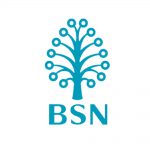What is Data Science?
Data science is a branch of science that employs scientific methods, processes, algorithms, and systems to derive knowledge and insights from data and its various forms, whether structured or unstructured, and is a continuation of several fields of data analysis such as statistics, data mining, and predictive analysis, which are similar to knowledge exploration in a database.
To put it another way, data science is a concept that combines statistics, data analysis, machine learning, and other methods to understand and analyse real-world phenomena using data. It employs techniques and theories from a variety of fields, including mathematics, statistics, information science, and computer science.
What Will You Learn From This Data Science Course?

- Learn to program with SAS, R and Python
- Discover storytelling and visualisation with data skills
- Learn Statistical and Mathematical Skills
- Analyse and manipulate real use-case datasets from various sources
- Produce a simple analytical data application along with relevant documentation reports
How Long is the Data Science Course?
On average, it takes 1 to 3 days of intensive studies for a person with no prior coding experience and/or mathematical background to become an entry-level data scientist. It is critical to remember that simply learning the theoretical foundations of data science will not make you a true data scientist.
Ted Learning’s Data Science Course in Malaysia, on the other hand, will provide learners with an in-depth introduction to Data Science in a total of 8 hours of learning.
Data Science Course Outline/Syllabus
Module 1: Introduction to Data Science
This module will introduce learners to the fundamentals of Data Science, including how to obtain data from various sources and how to clean the data for future use.
Module 2: Inference and Modelling in Data Science
Statistical inference and modelling are essential for analysing data that has been influenced by chance, and thus for data scientists. Learners will be introduced to inference and modelling, two of the most commonly used statistical tools in data analysis, in this chapter.
Module 3: Open Source Tools for Data Science
This module will teach you about three popular data science tools: GitHub, Jupyter Notebooks, and the RStudio IDE. You will learn about the features of each tool and why they are so popular among data scientists today.
Module 4: Python for Data Science and Artificial Intelligence (AI)
This Python introduction module will get you started with Python for data science. Learners will be able to write their own Python scripts and perform basic hands-on data analysis using a Jupyter-based lab environment after completing this module.
Module 5: Data Analysis with Python
Learners will be introduced to the fundamentals of data analysis with Python, as well as how to read data from sources such as CSVs and SQL, in this module.
Module 6: Data Visualisation with Python
Data Visualisation refers to the process of identifying trends and correlations in data by visually representing it. This module will teach students how to use various Python data visualisation modules such as Matplotlib, Seaborn, and Plotly to perform data visualisation.
Module 7: Machine Learning with Python
Finally, the final module of Ted Learning’s Data Science Certification Course will introduce learners to Machine Learning and what it is, as well as supervised vs unsupervised learning, linear & non-linear regression, simple regression, and other topics.
At Data Science Course Completion
- TWork with various data generation sources
- Discover Text Mining to generate sentiment analysis
- Perform forecasts via data generated from various sources
Who Should Attend Data Science Training?

Ted Learning’s Data Science Certification course is appropriate for IT Professionals, Analytics Managers, Business Analysts, Banking and Finance Professionals, and other related professions that work with large amounts of data.
Why Should You Learn Data Science?
A Promising Career
A career in data science is regarded as one of the best jobs of the twenty-first century. This certainly indicates a very large opportunity for the future, even if it is only in the next 5 years.
The pay for this profession is also not to be underestimated. Data scientists, data analysts, and data engineers are examples of data scientists’ work.
Priority Needs of Many Organisations and Enterprises
With market and industry competition increasing, various business organisations are now attempting to leverage data and information analysis to create new opportunities in their product and service businesses. This means that data scientists will have a significant impact on the development of the company’s marketing policies and strategies.
Getting Ready for Future Trends
Jobs and professions in the future are certain to change due to the development trend of information technology, which is the main driver of the Industrial Revolution 4.0. However, data will continue to be used in various aspects of business and life. You will be better prepared for future technological trends if you study data science because data science requires the following skills:
- Problem-solving skills
- View data analysis on the go
- Various knowledge and abilities in several other fields
Supporting Digital Transformation
In the era of digital transformation, most companies use or implement digital systems in their companies. Companies use the internet for various problems, one of which is in the field of data. By becoming a data scientist and mastering data science, we can find out new developments about data whose results can be applied in business decisions. This also shows that data scientists support digital transformation.
Enrol in TED Learning Data Science Course/Training Now

Because of their unique ability to make sense of big data, draw insights from it, and help businesses leverage those insights to drive profitability, data scientists are among the most in-demand professionals across a wide range of industries.
As such, Ted Learning offers intensive learning courses that will sharpen participants’ skills and prepare them for any on-demand professions, such as the Data Science Certification Course.
Ted Learning’s Data Science Course in Malaysia is led by a passionate team of academics and industry experts with real-world data science experience. You will gain a thorough understanding of data science concepts, theories, and tools, as well as the knowledge and understanding of how to apply them to advance your career and expand your business opportunities.
Contact us today to enrol in the most comprehensive Data Science Training in Malaysia.
Renganathan Palanisamy has extensive experience in both academic and corporate training arena which enables him to incorporate best practices of both training approach to ensure training delivery is effective and relevant. This is further strengthened by his involvement in various technology related collaboration with renowned players in the industry such as Microsoft, IBM and Oracle. During his service as a Programme Leader in KDU College Sdn Bhd, he was responsible for coordination, collaboration and delivery of courses offered by Sun Microsystems in partnership with Guidance View and as Authorized Sun Education Centre, Oracle under its Workforce Development Programme and Microsoft through its MSDN Academic Alliance Programme.
He started off his early days of involvement in IT industry professing strong inclination towards Java technology and the object oriented design and development practices. He was able to share his in-depth knowledge of the technology via several academic courses and workshops he conducted for students and academic staff alike. Later he ventured into database design and development with Oracle and eventually expanded to include Microsoft SQL Server as well as IBM DB2 and IBM Informix.
Currently his main focus is on delivering Data Management and Business Intelligence tracks which is strongly complemented by his exposure to non-Microsoft related technologies. He has strong understanding of .NET technologies and tools. His knowledge is seeked as evident in his presence at premier events such as Microsoft TechEd and his involvement in SQL PASS local group (SPAN). His technical skills coupled with know-how of training delivery techniques have earned him recognition amongst his peers and attendees of his training sessions. His specialty includes the ability to relate concepts derived from various technologies and ability to ensure smooth transition for trainees migrating to different technology. Resourcefulness is his trademark and this helps enhance the training experience of the attendees.
He is a dynamic and versatile individual. He is willing to take up new challenges to learn and has the ability to apply new skills in a short span of time. Other strengths include good time management, analytical skills, ability to present ideas in innovative ways and most importantly, a sense of responsibility.




